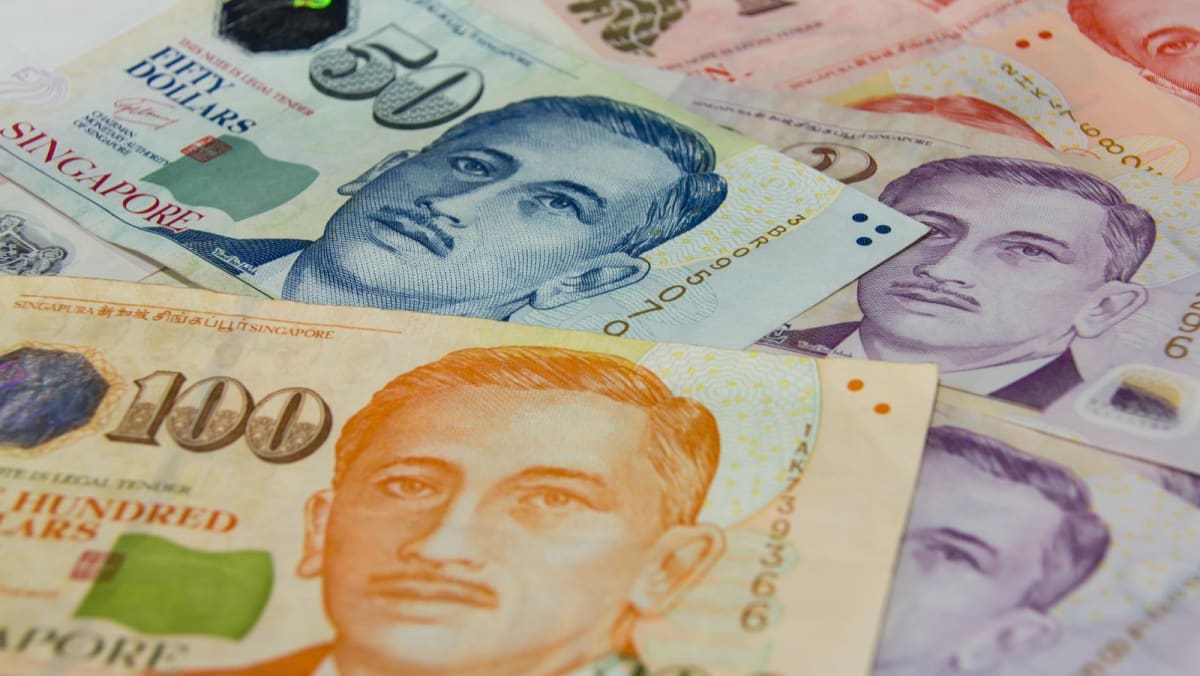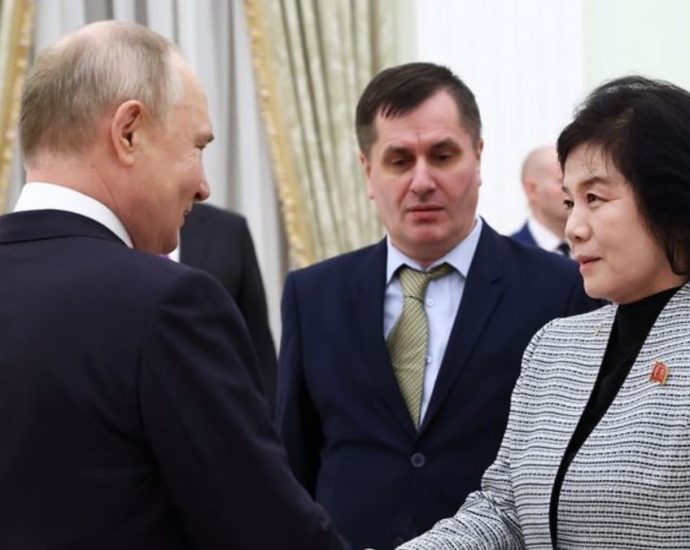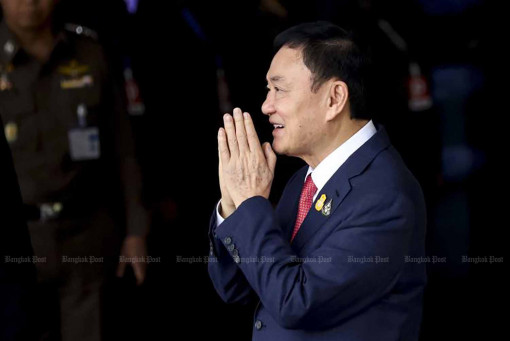South Korea finally banning the sale of dog meat
The South Korean dog meat trade will officially end in 2027 after a bill was passed making the slaughter of dogs and the sale of dog meat for human consumption illegal in the country (though the consumption of dog meat will still be legal). People who violate this new law could be fined up to 30 million won (US$22,311) and be jailed for three years.
The news has been embraced in South Korea as a long-awaited victory by many animal protection organizations. But it has also been received very negatively by pro-dog-meat associations, as the livelihoods of dog meat farmers and retailers will be directly affected by this legislation.
Dog meat is the fourth-most consumed meat in South Korea after pork, beef and chicken. However, the practice of eating dogs has been in sharp decline over the past few decades and has divided South Korean society for more than half a century.
For some, the trade represents resistance against cultural imperialism. For others, it is an obstacle to modernity. All the while, little attention is given to the fate of other animals whose death and commodification as meat are largely normalized and accepted.

Stigmatization of a practice
Dog consumption has a long history in Korea. Some Korean scholars point to the excavation of dog bones from Korean relics dating to the Neolithic age (roughly from 6000BC to 2000BC) as evidence that dogs have been eaten since at least that period.
But an important moment of national and international friction around the practice occurred in the run-up to the 1988 Seoul Olympic Games. The South Korean government at the time banned the sale of dog meat temporarily in the traditional markets of the capital and asked dog meat retailers to remove dog carcasses from their stalls to avoid offending foreigners.
This decision was widely criticized by part of South Korean civil society who saw it as a form of cultural imperialism reminiscent of colonial times when many Korean cultural traditions were erased or stigmatized. This episode aroused feelings of national pride and protection towards the consumption of dog meat.
It was followed by a stronger reaction during the 2002 Fifa World Cup (which was co-hosted by South Korea). Influential South Korean public and political figures took a public stance in favor of dog meat as a national cultural symbol.
Tensions were further reignited before the 2018 Winter Olympics in Pyeongchang, a city in the country’s north-east. It was reported that the hiding of dog meat restaurant signs and dog carcasses had once again been introduced by the government.
A practice in sharp decline
However, there’s no denying that dog meat consumption in South Korea has slumped dramatically, particularly since 2000. In 2002, 3 million dogs were slaughtered for consumption in South Korea per year. According to animal protection group, Kara, this had fallen to just under 1 million by the early 2020s – a third of what it was more than 20 years ago.
In recent decades, a civil movement led by animal protection charities has campaigned for the end of the trade. This movement has largely been supported by younger generations who, perhaps also influenced by the development of “pet culture”, are more inclined to challenge centuries of tradition than previous generations.
It could be argued that the Covid pandemic has also played a part in the sharp fall in dog meat consumption in recent years. Until the outbreak of Covid, live animals, including dogs, were often sold and slaughtered in traditional markets. Since then, municipal authorities have opened a dialogue with dog retailers to negotiate the demolition of dog slaughtering facilities.
Ongoing research conducted by one of us (Julien Dugnoille) alongside colleagues (Frédéric Keck and Miwon Seo-Plu) suggests that the pandemic may have facilitated a move away from the status quo on dog meat consumption.
This shift has created a discussion around the end of the practice as a way to keep urban spaces free from the risk of diseases that can be spread between animals and humans.

Korean Dog Meat Association
Since 2014, some of these municipalities have agreed to compensate dog meat retailers for closing dog meat stalls in traditional markets. However, now that a full ban is coming into effect, dog meat farmers are requesting compensation schemes as this new law will directly affect their livelihoods.
The Korean Dog Meat Association has been arguing that the bill represents an abuse of power that overlooks the perspective of many South Koreans and that it infringes on the right to choose what one wants to eat. Last December, the Association demanded compensation for farmers of 2 million won per individual dog and a grace period of ten years after the ban.
While the ban may be good news for Korean dogs, dog lovers and for animal protectionists, it adversely affects those whose livelihoods depend on the domestic trade and who have practiced the profession for generations.
The change does not necessarily mean an end to the consumption of dog meat in South Korea. Dog meat consumption will continue to be lawful (presumably supplied by imported meat).
Still, this is a milestone for the Korean relation to dogs that cements the dog’s privileged status, in contrast to other animals whose commodification as meat remains normalized and invisible.
Julien Dugnoille is Senior Lecturer in Anthropology, University of Exeter and John Knight is Reader in Anthropology and Ethnomusicology, Queen’s University Belfast
This article is republished from The Conversation under a Creative Commons license. Read the original article.
Ex-Certis Cisco security officer jailed over S$70 in bribes from sex enhancement drug peddler

The court heard that since mid-2022, Hafidz had been part of a foreign workers management team responsible for patrolling the area around Geylang Lorong 17 to 25, 30 and 40.
He was employed by Dynamiz Security and contracted to Certis Cisco as a security officer, and in turn deployed to SPF.
SPF had formed foreign workers management teams to patrol areas where foreign workers congregate, as part of its efforts to enforce law and order. Each team comprised auxiliary police officers, who were armed and in uniform, and security officers, who were unarmed and in polo T-shirts.
SPF entered into a contract with Certis Cisco to supply officers for these teams.
The officers would patrol specified areas and enforce various regulations against offences such as littering, the sale of contraband cigarettes, and sales of illegal sex enhancement drugs and pills.
When they encountered such offences, the officers had to detain the offenders, seize any illicit items and inform the police.
If the offenders could not be detained, they had to seize the items and take them to a designated police station to lodge a seizure report, then hand over the items to the police.
HOW THE PLAN WORKED
Around May 2022, Hafizudin hatched a plan with another team member – auxiliary police officer Thiru Murugan Shanmugam, a 30-year-old Malaysian. Thiru had been in a foreign workers management team since 2015.
The plan involved obtaining gratification from sex enhancement drug peddlers whom they encountered during their patrols. In return for taking money from them, the pair would refrain from taking law enforcement action as required by the police.
They approached one such peddler, Chinese national Chen Zixiong, whom they had previously encountered during their patrols.
From May to June 2022, Hafizudin abetted Thiru on two occasions to obtain S$140 in bribes. They split the money equally.
To pull off the plan, Thiru and Haifuzudin first seized the sex enhancement drugs from Chen as per protocol. They then kept a portion without reporting it to the police, with Hafizudin taking a photo of the drugs and sending it to Thiru.
After the rest of their team left, Thiru secretly approached Chen in person and offered to return the portion of the seized drugs, if Chen agreed to pay a specific sum of money. The sum would be a few times higher than the price of the drugs.
Thiru also showed Chen the photo that Hafizudin had taken.
When Chen agreed, he then placed the cash in a cigarette box and put it at a location as instructed by Thiru over WhatsApp or Telegram.
Thiru or Hafizudin would collect the money and return the sex enhancement drugs to Chen by telling him to pick them up from a specified location.
On some occasions, the officers also tipped Chen off about law enforcement raids, including when and where the team would conduct patrols.
The court further heard that Chen agreed to the plan so he would not get into trouble with the law, and also out of fear of the repercussions if he was to refuse.
The Corrupt Practices Investigation Bureau received information about Thiru’s and Hafizudin’s offences on Aug 29, 2022.
Hafizudin was placed on a stop list and arrested at Woodlands Checkpoint about two weeks later.
For corruption, he could have been jailed for up to five years, fined up to S$100,000, or both.
Thiru and Chen have been charged in court and their cases are pending.
Initiative for DBS PayLah! users to get up to S$3 off hawker meals on Fridays extended to July
INITIATIVE AIMS TO “EASE COST OF LIVING PRESSURES” DBS noted that consumers expect a “slight negative impact” on Singapore’s economic growth over the next 12 months, given the uncertainties stemming from geopolitical conflicts, global growth prospects and general cost-of-living pressures. “Against this backdrop, the extension of weekly hawker meal subsidies seeksContinue Reading
Flight returns to Japan after âdrunkâ man bites crew member
 Getty Images
Getty ImagesA US-bound ANA flight was forced to return to Tokyo after an intoxicated passenger bit a crew member mid-flight.
The man, reportedly a 55-year-old American, was “heavily drunk” when he bit a cabinet attendant’s arm, slightly injuring her, a spokesman for the airline told AFP.
Japanese media said the man told police he had taken a sleeping pill and did not remember what happened.
It is the latest in a series of recent incidents to affect Japanese aviation.
The plane, which reportedly had 159 passengers on board, was over the Pacific Ocean when the incident happened, prompting its pilots to turn back to Tokyo’s Haneda Airport.
There the man was handed over to police, the airline said.
It is the second incident to impact ANA in recent days – and the fifth involving the Japanese aviation industry in a matter of weeks.
On Saturday, a domestic ANA flight in Japan had to turn back after a crack was discovered in the window of the cockpit.
The crack appeared in the outermost of the four layers of window surrounding the cockpit, and there were no injuries to anyone on board.
“The crack was not something that affected the flight’s control or pressurisation,” an ANA spokesperson said.
The most serious of the recent incidents occurred at Haneda on 2 January, when a Japanese Airlines aircraft collided with a smaller coastguard plane.
All 379 people on board the passenger jet escaped before it burst into flames, but five of the six people on the smaller aircraft – which was supplying relief after a major earthquake hit central Japan – died.
On Tuesday, aircraft belonging to Korean Air and Cathay Pacific clipped wings at an airport on Japan’s northern island of Hokkaido amid wintry conditions. There were no injuries.
A similar incident occurred on Sunday when an ANA aircraft came into “contact” with a Delta Air Lines plane at Chicago airport in the United States, the Japanese airline told AFP, also causing no injuries.
Related Topics
Optical-8: Japan’s satellite eye on China, N Korea missiles
Japan’s recent Optical-8 intelligence-gathering satellite launch underlines the remilitarizing nation’s growing focus on space-based security, with a particular eye on fast-evolving Chinese and North Korean missile and other military threats.
The Optical-8 was successfully launched on January 12 by Mitsubishi Heavy Industries (MHI) using the H2A rocket from the Tanegashima Space Center in southwestern Japan, according to multiple news outlets.
The Japanese Cabinet Satellite Intelligence Center and MHI confirmed that the satellite successfully separated from the rocket and settled into its intended orbit. Optical-8 can reportedly capture detailed images, though its capability is limited in severe weather.
Japan began its intelligence-gathering satellite program after a North Korean missile flew over Japan in 1998. Japan now aims to install a network of 10 satellites, some carrying radars, to spot and provide early warning for possible missile launches.
Japan has clearly taken note of the role space plays in present and will play in potential future conflicts, as modern weapons systems and command and control (C2) cannot function without space-based assets.
Japan’s June 2023 Space Security Initiative notes the role of Western commercial satellites in supporting Ukrainian resistance against Russia’s invasion, alongside the threat of China and North Korea’s intelligence, surveillance and reconnaissance (ISR) satellite programs.

The document also highlights the proliferation of anti-satellite (ASAT) capabilities such as kinetic weapons, cyberattacks and electronic warfare.
The Space Security Initiative document mentions Japan will employ ISR satellite constellations, including government and commercial satellites and those from allied countries, to tackle those rising threats.
It also states that Japan will develop a space-based missile defense system against hypersonic threats, establish a multilayered and redundant satellite communications network, enhance satellite positioning, and build large-scale and flexible satellite launch capabilities.
Optical-8’s launch is crucial to building Japan’s intelligence, surveillance, reconnaissance and targeting (ISRT), essential for its planned counter-strike capabilities.
In a June 2023 article for the Center for Strategic and International Studies (CSIS), Suzuki Kazuto notes that Japan’s 2022 National Security Strategy, 2022 National Defense Strategy and 2022 Defense Buildup Program all introduce the idea of using satellite constellations to monitor potential foreign targets.
Kazuto notes that Japan’s strategic satellite ISR previously focused on monitoring long-term changes for diplomatic and security strategies. However, he says Tokyo’s decision to acquire counter-strike capabilities to attack enemy missile bases and other targets with standoff missiles requires satellite constellations to improve space situational awareness (SSA) and information-gathering.
Kazuto also notes that satellite constellations are vital for defense against hypersonic missile threats. However, he notes that it would be difficult for Japan alone to build the required satellites to detect, identify, track and intercept hypersonic missiles.
Yasuhito Fukushima mentions in a February 2023 Stimson article that Japan’s public and private sectors could pursue a strategy to cooperate with US space companies that have the expertise to develop and operate satellite constellations. Fukushima also says it would benefit Japan to collaborate with the US on space-based ISRT.
However, Kazuto points out that the US government does not possess satellite constellation technology owned by the private sector. He notes that US-Japan collaboration on satellite constellation may result in a strange situation wherein the Japanese government collaborates with the US private sector, which would require new methods of cooperation.
Japan’s satellite constellations may also provide redundancy and resilience to their US counterparts, providing the US with alternative space-based capabilities if their systems are taken out of action.
While many satellites launch space-based positioning and navigation systems, only Japan’s Quasi-Zenith Satellite System (QZSS) is highly compatible with the US GPS. QZSS can be used in an integrated way, with both systems capable of being used as a single group of satellites.
Notably, in May 2023, the US mounted its military sensors on Japan’s QZSS satellites, augmenting the US Space Force’s space domain awareness (SDA) capabilities in areas not fully covered by US radar and telescopes.
Since QZSS can be integrated with GPS, more satellites transmitting more data means more precise location identifications and fewer positioning errors.
Despite these lofty goals and improving capabilities, Japan faces policy, operational and diplomatic challenges regarding the use of space which may impact its satellite program.
In a June 2023 article for CSIS, Saadia Pekkanen notes that the text of the 1960 US-Japan defense treaty has stayed the same, even with new and emerging space-based threats. From an international law perspective, she points out that the US-Japan alliance is still terrestrial-bound.

Pekkanen says that while the US and Japan could easily stretch Article V of the US-Japan defense treaty, they need to build interpretive clarification on just what an “armed attack against either Party in the territories under the administration of Japan” means in the context of outer space.
Pekkanen also mentions that the US and Japan need to build a common SDA architecture to enable foundational safety for space operations. She also suggests that the US and Japan can synchronize diplomacy to shape international norms regarding space security.
Pekkanen says that while Japan has supported the US in its April 2022 decision to ban destructive ASAT tests, the US could support Japan’s leading position in the Asia Pacific Regional Space Agency Forum (ARSAF), where they could craft norms through APRSAF’s National Space Legislation Initiative.
Russia is developing ties with North Korea in all areas, including ‘sensitive’ ones: Kremlin
MOSCOW: Russia is developing its relations with North Korea in all areas, including “sensitive” ones, Kremlin spokesman Dmitry Peskov said on Wednesday (Jan 17). North Korea’s foreign minister lauded comradely ties with Russia on Tuesday and then held rare talks in the Kremlin with President Vladimir Putin, who has beenContinue Reading
Thaksin is indeed in hospital, eligible for parole
PUBLISHED : 17 Jan 2024 at 16:49

Convicted former prime minister Thaksin Shinawatra is indeed staying in the Police General Hospital and is eligible for parole, justice authorities said on Wednesday.
Somboon Muangklum, adviser to the justice minister, told a press conference at the Justice Ministry that many parties were trying to verify whether Thaksin is really ill and in a ward at the hospital.
He said a representative of the ombudsman had already visited the Police General Hospital and met Thaksin on the 14th floor of the Maha Bhumibol Rachanusorn 88 Phansa Building, which is in the hospital compound.
Mr Somboon said he also believed that Thaksin remained in the hospital and was not staying in an apartment, as some people suspected.
Sitthi Sutivong, deputy director-general of the Department of Corrections, was also at the media briefing. He told reporters Thaksin was eligible for parole because he was old and ill.
However, the relevant regulation required that the prison governor must seek parole for inmates, who did not have the right to do so themselves, Mr Sitthi said. Normally, this was done on a monthly basis.
Mr Sitthi said the governor of Bangkok Remand Prison, where Thaksin was admitted on Aug 22 last year, had not requested parole for Thaksin.
Thaksin, 74, returned to the country on Aug 22 after 15 years of self-exile and entered the justice system. He had been convicted and later sentenced in absentia for corruption and abuse of authority while in office prior to the military coup that ousted him in 2006.
On arrival on Aug 22, 2023, Thaksin was detained and taken to the Supreme Court, and was the same day sentenced to eight years in prison, later reduced to one year by royal clemency.
That same night, the former premier was taken from Bangkok Remand Prison, where he had been jailed, to Police General Hospital for “health reasons”. He has reportedly undergone surgery and been there ever since.
A senator earlier anticipated Thaksin’s release next month.
Mandatory treatment ordered for commuter seen pulling open doors on moving MRT train

SINGAPORE: A commuter who was filmed pulling open train doors late last year was sentenced to a 12-month mandatory treatment order on Wednesday (Jan 17).
The commuter, Vanessa Wang Zi Qi, 47, had been testing the doors for about two weeks and was suffering a relapse of bipolar disorder, which causes people to experience erratic mood swings.
Wang appeared in court after being remanded at the Institute of Mental Health (IMH) for more than a month.
District Judge Kessler Soh noted that Wang was recommended to undergo a mandatory treatment order, which directs an offender suffering from certain treatable psychiatric conditions to undergo psychiatric treatment.
The judge told Wang to comply with psychiatrist appointments, take medication as prescribed and ensure he does not re-offend. The judge also arranged for him to speak to a court counsellor after the hearing.
PREVIOUSLY DEFAULTED ON TREATMENTS
Wang pleaded guilty on Jan 5 to two counts of public nuisance and a third charge of voluntarily causing hurt to a train employee, with a fourth charge taken into consideration.
He was diagnosed with gender dysphoria and bipolar disorder in 2019, but defaulted on his treatments and follow-ups for two years.
In January 2021, he returned to IMH for stress and was diagnosed with adjustment disorder but defaulted again.
He is currently on prescribed hormonal therapy for gender transitioning, and has been unemployed since 2021. He was married for 11 years before getting a divorce in 2017.
Around the time of his public nuisance offences, Wang was in a hypomanic relapse of his Bipolar II disorder, which was characterised by elevated and irritable mood, increased energy, a reduced need for sleep and excessive involvement in activities that had potential for painful consequences.
Wang was also suffering from borderline personality disorder at the time, which was characterised by disturbances in his self-image and sense of self, fears of abandonment, a pattern of short-lived, unstable relationships, chronic feelings of emptiness and difficulty controlling his temper.
THE OFFENCES
On Nov 29 last year, Wang boarded a train on the North-South Line. At about 12.50pm between Khatib and Yio Chu Kang, he began pulling at the doors of the train to test if they could be opened while the train was moving.
He succeeded in forcing a gap between the doors, alarming other commuters who asked him to stop. One commuter approached Wang and asked him to wait for the next stop.
When the train got to Yio Chu Kang MRT Station, Wang continued to pull on the doors, this time to prevent them from closing.
An unidentified commuter pressed the emergency button in the train carriage, prompting senior station manager Mr Foo Jee Yong, 65, to check along with his colleagues.
When the SMRT employees got there, commuters told them that Wang had been pulling on the doors.
Mr Foo asked Wang to follow him out of the train, but he refused and began shouting at the SMRT staff not to touch him.
The SMRT employees then stayed on the train with Wang as the train resumed its journey towards Ang Mo Kio.
Wang continued swinging his elbows to avoid the train staff, and kicked Mr Foo’s leg multiple times, causing him soreness.
Wang was removed at the next station with the help of more train staff, as he was kicking violently and shouting. Wang then lay down on the platform and refused to move, calling the Singapore Civil Defence Force to say that he was very injured and required assistance.
Japan plane turns back after man bites cabin attendant
All 379 people on board the JAL Airbus escaped just before the aircraft was engulfed in flames. Five of the six people on the smaller aircraft, which was helping in a relief operation after a major earthquake in central Japan, died. Then on Tuesday, the wing tip of a KoreanContinue Reading
Phone shop owner fined S$48,000 for registering, selling prepaid SIM cards without customers’ consent

Investigations revealed that Koh exploited the SIM card registration process to use his customers’ personal data to register for additional prepaid M1 SIM cards that they did not buy.
One method Koh used to obtain his customers’ personal data was duplicate scanning.
After scanning a customer’s identity document to register the SIM card they wanted to buy, he would scan the document again to register a second SIM card without them knowing.
Koh would then hand over only one SIM card to the customer and keep the other to sell it to an unauthorised buyer.
Another method he employed was keeping the SIM cards his customers did not want to buy.
Occasionally, a customer who registered a SIM card would not want to continue their purchase after they found out that credit for the SIM card would have to be loaded separately.
Instead of cancelling or reversing the registration process on such occasions, Koh would keep the SIM cards and activate them without his customers’ knowing. He would then offer the SIM cards for sale to unauthorised buyers.
During investigations, Koh admitted that he wanted to earn extra money from selling the pre-registered SIM cards to unauthorised buyers.
During the four-year period in which he sold such SIM cards to anonymous buyers, Koh was estimated to have made a profit of about S$35,000, selling about 250 illicit SIM cards per year with a profit of S$35 per card.
Koh collected and used the personal data of 73 people to register the 95 SIM cards linked with the complaints received by PDPC. However, it was likely that the personal data of many more individuals, about 1,000, was involved in the case, the commission said.











